Prime Minister David Cameron is urging a global crackdown on the “cancer” of corruption in the wake of Fifa bribery allegations.
He will use the G7 summit in Germany to call for an international effort to clean up governments and business.
And he will condemn the international “taboo” on pointing the finger at corrupt institutions.
Fourteen people have been charged by the US over alleged corruption at world football’s governing body.
The US justice department alleges that the 14 accepted bribes and kickbacks estimated at more than $150m (£97m) over a 24-year period.
Breaking taboos
British officials said David Cameron would speak of a “cancer of corruption that poisons and stifles” the progress the G7 hopes to make on development and growth, and that the kind of scrutiny being applied to Fifa should not be restricted to the footballing body.
He is not, however, expected to name organisations and businesses that he would like to see put under the spotlight.
Speaking ahead of the summit, Mr Cameron said the issues surrounding Fifa were an “opportunity to learn a broader lesson about tackling corruption”.
He added: “Just as with Fifa, we know the problem is there but there is something of an international taboo over pointing the finger and stirring up concerns.
“At international summits, leaders meet to talk about aid, economic growth and how to keep our people safe.
“But we just don’t talk enough about corruption. This has got to change. We have to show some of the same courage that exposed Fifa and break the taboo on talking about corruption.”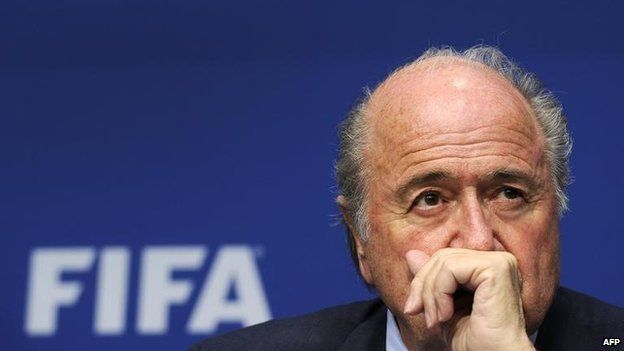
Sepp Blatter has said he will step down as Fifa president
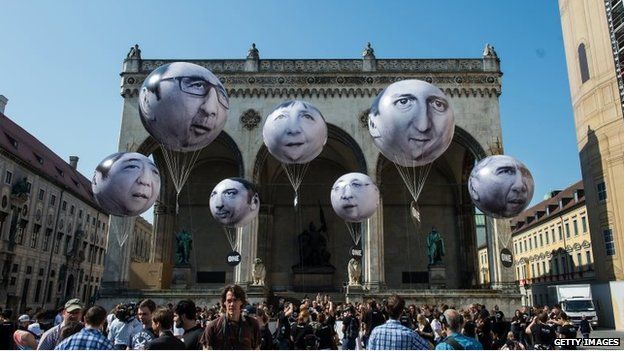
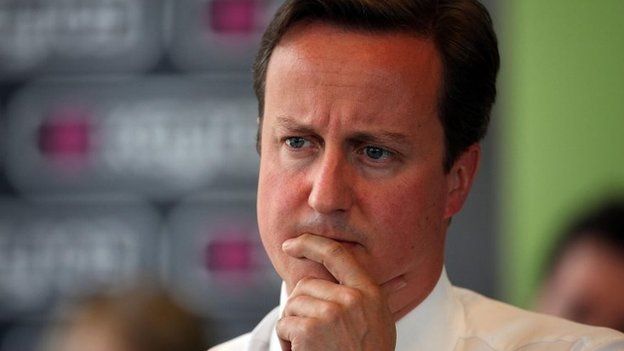
Cost of corruption
The UK prime minister will join US President Barack Obama, French President Francois Hollande, Italian PM Matteo Renzi, Canadian PM Stephen Harper and Japanese PM Shinzo Abe for the two-day G7 summit, hosted at Schloss Elmau in the Bavarian Alps by Germany’s Chancellor Angela Merkel.
Mrs Merkel has put climate change and sustainable development at the top of the agenda for the annual summit of the world’s leading industrialised economies, which gets under way on Sunday.
The talks will also focus on growth, security and the threat from terrorism and disease epidemics.
But Mr Cameron will argue that the issue of corruption has a bearing on all these areas and must be discussed openly as part of the talks.
He will cite World Bank estimates that corruption adds 10% to business costs worldwide, with the equivalent of one trillion US dollars (£650bn) paid in bribes every year.
The Organisation for Economic Co-operation and Development (OECD) believes corruption costs about 5% of global GDP annually, while in developing countries it can add 25% to the cost of procurement, Mr Cameron will say.
Seven of the 10 countries considered to be the most corrupt in sub-Saharan Africa are also in the bottom 10 on the human development index and infant mortality is twice as high in countries with the most corruption as in those with the least.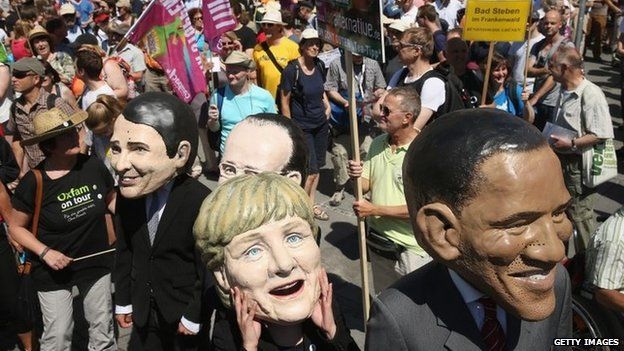
Protesters have been wearing masks at marches in Munich, depicting the G7 world leaders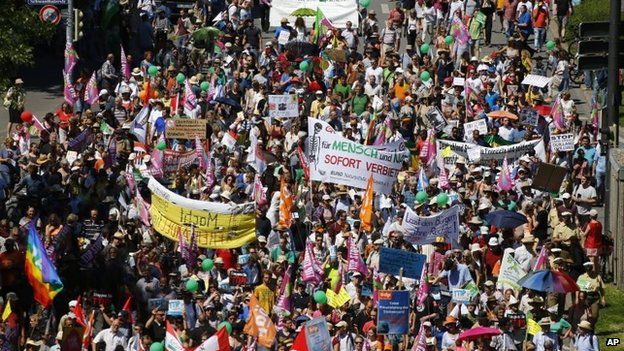 The Munich protest took place ahead of the G7 meeting in nearby Garmisch-Partenkirchen
The Munich protest took place ahead of the G7 meeting in nearby Garmisch-Partenkirchen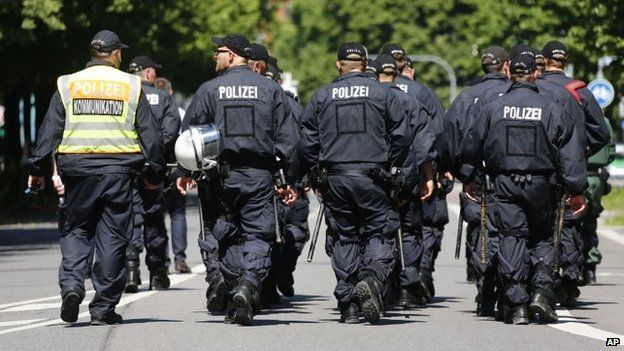 The protest marches have been marshalled by German police officers
The protest marches have been marshalled by German police officers
UN development
Mr Cameron will say that there is an onus on world leaders to do what they can to tackle the issue.
He will call for action in the coming months to focus the efforts of the various international organisations tasked with combating corruption to ensure that they are working effectively with one another.
Anti-corruption measures should be at the heart of the new United Nations development goals for the coming 15 years, due to be agreed in September, he will say.
Mr Cameron has spoken about the theme of corruption before, writing an article on it ahead of last year’s G7.
“Because of the events of Fifa, which have sent shockwaves around the world, that could perhaps make a difference and get this moving forward,” BBC political correspondent Alan Soady said.
Diane Sheard is UK director of the One Campaign, which campaigns for an end to poverty and preventable disease.
She said corruption within Fifa should be a wake-up call for G7 leaders.
“Transparency is the only reliable vaccine against the disease of illicit finance, money-laundering and secret payments,” she said.
Source: BBC































